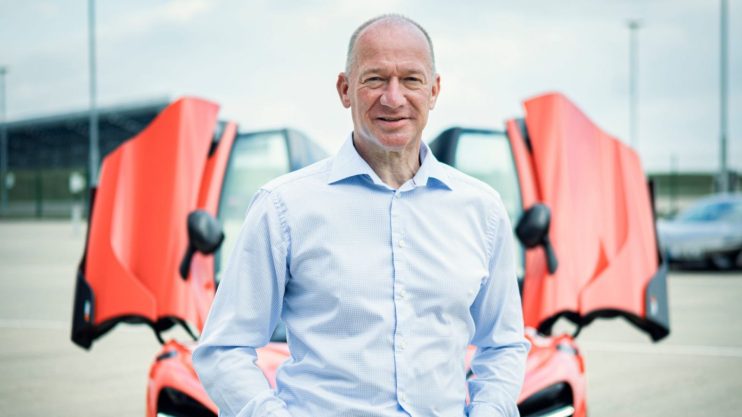McLaren boss says operating costs now ‘break even’ following fundraising and redundancies, and downplays second wave fears

McLaren CEO Mike Flewitt has described his “horrible” 2020 in an exclusive interview with City A.M., but says he is “cautiously optimistic” despite the second wave of coronavirus.
Flewitt was forced to make 1,200 redundancies – almost a quarter of the company’s 4,000-strong workforce – and carry out a sale and lease-back of the McLaren Technical Centre in Woking in order to pay down debt after production screeched to a halt.
“We weren’t building cars or selling cars,” he said. “That was really grim, and a huge financial strain, but we secured financing that saw us through… We were just very fortunate that, after many successful years of Formula 1 under Ron Dennis, McLaren [owned] the premises outright.”
He says that despite talk of a so-called “circuit-breaker” and the prospect of ongoing local lockdown measures, he’s hopeful for the new year.
“Operating costs are now back to break-even and we look forward to the market recovering slowly. I don’t know how much of a setback a Covid ‘second wave’ will be, but there’s a different tone to things this time: dialling back social contact, but continuing to facilitate people working and education. I’m cautiously optimistic.”
In June McLaren secured a £150m financing facility with Bahrain’s national bank, according to the lender, following a £291m injection into the firm by investors in March. The Norman Foster-designed Woking base is thought to have been worth around £200m, and McLaren also confirmed earlier this year it was considering mortgaging its collection of classic cars, which could have raised another £100m.
Before the economy closed down this year, McLaren had seen an 11 per cent year-on-year sales increase. The Surrey-based firm is now pinning its hopes on a new entry-level hybrid supercar, due in April 2021, which it says is not only better for the environment but offers a performance advantage for drivers.
Flewitt also told City A.M. McLaren would eventually build a fully electric car, but not until the second half of the decade.
• Click here to read the full interview
